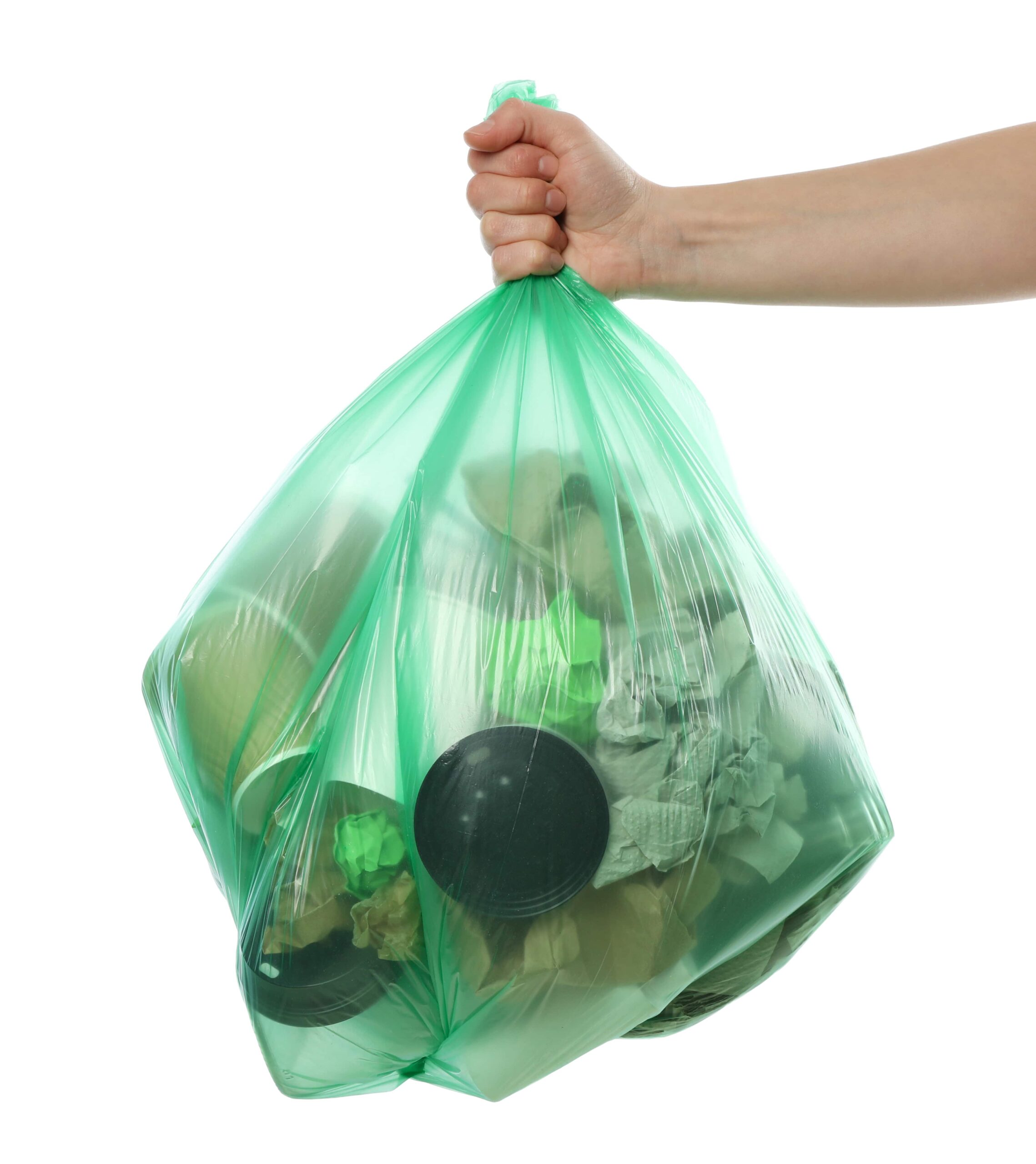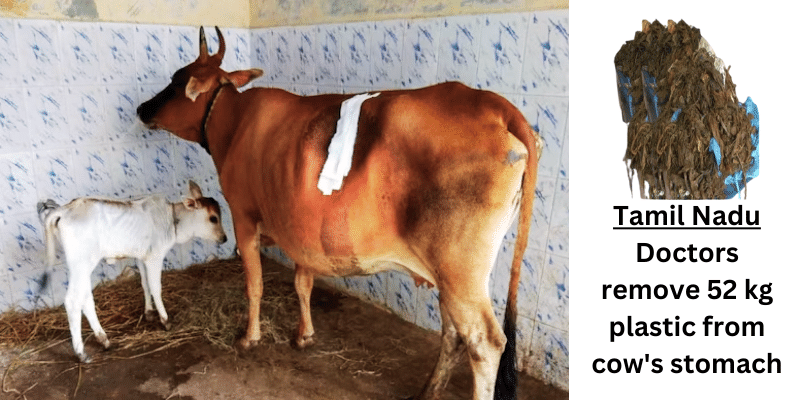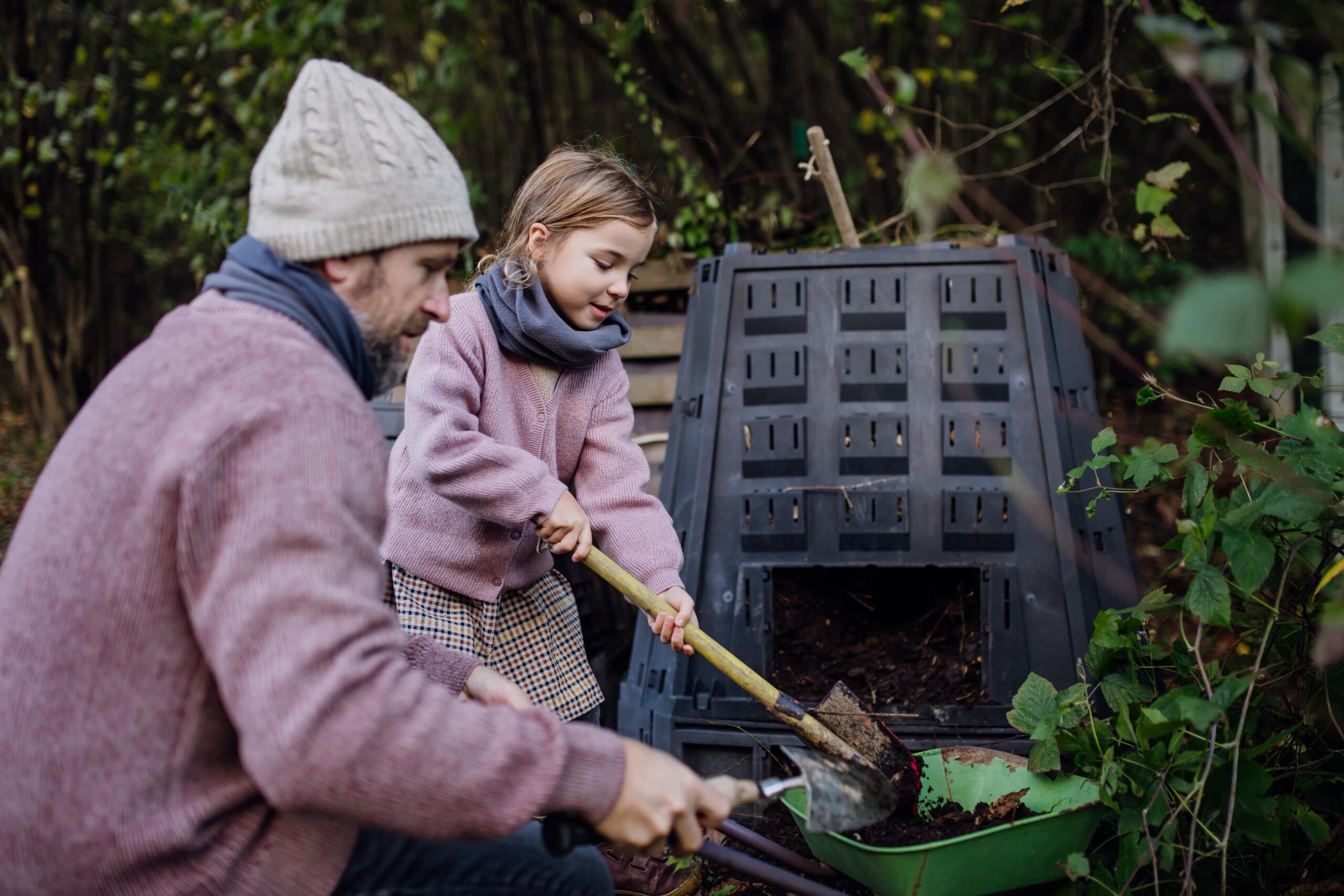Compostable bags are gaining popularity as a safer and environmentally friendly alternative to regular plastic bags. Understanding what they are made of and why they are beneficial for health can help us to make better choices for ourselves and the planet.
In today’s world, where plastic pollution is a global headache, compostable bags are emerging as a sustainable solution. But exactly what are compostable bags, and why should we use them? Let’s explore these eco-friendly plastic bags that are becoming a big part of our everyday lives!
What are Compostable Bags?
Compostable bags are a type of packaging material made from plant-based resources like corn starch, potato starch, wheat starch, or other renewable resources.
Unlike regular plastic bags, compostable bags break down into non-toxic and organic matter when disposed of properly.
Think of them as bags that turn into soil or biomass rather than sticking around in the environment for hundreds of years!

These bags are designed to decompose in a composting condition, like optimum temperature, humidity, moisture and, the presence of certain microorganisms to break down them effectively.
Upon composting, they can turn into nutrient-rich soil in just a few months, which does not happen in the case of regular plastic bags.
What are Regular Plastic Bags?
Regular plastic bags are made from petroleum-based polymers like polyethylene and are often treated with toxic chemicals, like phthalates, BPA, heavy metals, fire-retardant substances, and other chemicals to enhance the strength and functional properties of bags.
Phthalates and BPA are commonly found in regular plastic bags and are known to be endocrine disruptors and potential carcinogens.

Exposure to these chemicals through regular plastic bags has been linked to various health issues, including hormonal imbalances, reproductive problems, and increased cancer risk.
Compostable Garbage Bags for Kitchen Waste
Using compostable garbage bags for our kitchen waste is a simple and best way to protect our environment, animals, and even our own health.
Here’s why switching to compostable bags is essential and what happens if we continue to use regular plastic bags or petroleum-based plastic bags.
Benefits of Using Compostable Garbage Bags
1. Eco-Friendly Decomposition: Compostable bags are made from plant-based materials like corn starch, potato starch, and wheat starch, which decompose naturally and enrich the soil upon composting.
2. Safe for Animals: Compostable bags are made from plant-based materials and break down without leaving toxic residues, making them less likely to harm animals like cows if accidentally consumed.
Unlike plastic bags, they do not cause gastrointestinal blockages in cows, dogs, or other animals, thus preventing unnecessary suffering and medical complications.
3. Reduces Soil and Water Contamination: Compostable bags degrade fully into biomass, which enriches the soil instead of contaminating it.
Since compostable bags are manufactured without toxic additives, the risk of harmful chemicals leaching into the ground or groundwater is significantly reduced.
This contributes to maintaining cleaner and safer ecosystems.
4. Completes the Natural Cycle: The use of compostable bags helps to complete the natural cycle of waste (kitchen scraps) into nutrient-rich compost that can be used to grow more food. It’s a great way to contribute to a circular economy.
The Dangers of Using Petroleum-Based Plastic Bags
1. Harmful to Animals: Regular plastic bags pose a severe risk to animals, especially cows, dogs, and other wildlife that might take it mistakenly since we are throwing kitchen scrap in regular plastic bags.
Upon ingestion, plastic bags do not break down in the animal body and can cause gastrointestinal blockages, leading to severe pain, malnutrition, or even death.
This silent killer affects countless animals every year without realizing the deadly impact of plastic bags.

2. Soil and Water Contamination: Regular plastic bags do not decompose naturally. Instead, they break down into micro-plastics, nano-plastics, and other toxic additives like phthalate and BPA, which are used during the manufacturing of regular plastic bags.
These toxic substances contaminate soil and water, eventually making their way into our food chain.
3. Health Hazards to Humans: The toxins from plastic bags don’t just stop at soil or water; they enter the food chain, impacting human health in several ways:
When we consume food grown in contaminated soil or drink polluted water, we expose ourselves to harmful substances, which can lead to serious health issues, including hormonal disruptions, cancers, and other chronic illnesses.
(It’s important to note that standard water filtration plants are unable to remove nanoplastics from contaminated groundwater)
Microplastic Ingestion: Microplastics have been found in fish, seafood, and even in table salt. When consumed, these particles can bio-accumulate (Accumulation in Body), causing inflammation, disrupting gut health, and organ failure over time.
Chemical Exposure: Plastics can release chemicals like BPA and phthalates, which are known to interfere with hormones and are linked to health issues such as obesity, diabetes, cancer, and reproductive disorders.

4. Long-Lasting Environmental Damage: A single-use plastic bag can take hundreds of years to break down, which continuously releases toxins into the environment during that time.
This persistent pollution not only damages ecosystems but also increases the long-term burden on waste management systems.
Switching to compostable garbage bags for our kitchen waste is not just an environmentally conscious choice; it’s a step toward a greener future.
By making this small change, you’re contributing to a cleaner, healthier, and more sustainable world for future generations.
How do I Compost Compostable Bags?
Turning compostable bags into nutrient-rich soil is a great way to recycle waste for gardening and agriculture. However, to ensure they decompose properly, it’s crucial to dispose of them correctly.
Here are some common methods to compost these bags properly:
1. Home Composting

Home composting is a convenient and eco-friendly way to compost your kitchen waste with compostable bags. Here’s how you can do it:
Materials Needed: A compost bin or pile, green waste (food scraps, grass clippings), brown waste (leaves, cardboard), and compostable bags.
Steps:
Tear or Cut the Bag: Tear the compostable bag into smaller pieces to speed up the decomposition process. Smaller pieces break down faster in home composting.
Layering: Add the pieces of compostable bag to the compost pile and mix them with green and brown materials to maintain a balance of nitrogen and carbon.
Maintain the Pile: Turn the compost regularly up and down to allow oxygen in, and ensure it stays with optimum moisture level but not waterlogged. Proper aeration helps to accelerate decomposition faster and faster.
Monitor Decomposition: It may take 3-6 months for the bag to fully decompose, depending on factors like temperature, moisture, presence of micro-organisms, and pile management.
Outcome: Once it is fully decomposed, the compost can be used in your garden for better soil and plant growth.
2. Industrial Composting
Industrial composting facilities are designed to handle compostable products at a larger scale. They operate under controlled conditions that optimize the decomposition process.
Materials Needed: Access to a local industrial composting facility.
Steps:
Check Local Facilities: Find a facility that accepts compostable bags and other compostable items. Not all facilities accept all types of compostable waste, so check their capabilities.
Separate and Dispose: Make sure only compostable items are in the bag before disposing of them at the facility. Some facilities have drop-off points, while others provide curbside pickup services.
Decomposition Process: The facility will process the bags under high temperatures, moisture, and microbial activity, which significantly speeds up the decomposition process compared to home composting.
Outcome: The resulting compost is often used in farming or sold to the public for gardening purposes.
3. Vermicomposting (Worm Composting)
Vermicomposting uses worms to break down organic material, and to it, compostable bags can be added for decomposition.
Materials Needed: A worm bin, red worms, food scraps, and shredded compostable bags.
Steps:
Shred the Bag: Shred the compostable bag into very small pieces, so it is easy for worms to ingest.
Add Gradually: Mix small amounts of shredded bags into the bin along with food waste.
Maintain Conditions: Keep the bin moist and well-ventilated. Worms grow in dark and moist environments, so maintaining the optimum conditions is key to successful vermicomposting.
Outcome: Over time, the worms will break down the materials into worm castings, a highly nutrient-rich fertilizer that’s excellent for gardening and agricultural use.
4. Bokashi Composting
Bokashi composting is an anaerobic (Absence of Oxygen) composting method that ferments food waste using a special bran inoculated with beneficial microorganisms.
Materials Needed: A Bokashi bin, Bokashi bran, food scraps, and compostable bags.
Steps:
Cut the Bag: Cut the compostable bag into small pieces to ensure faster fermentation.
Layer with Bokashi Bran: Add layers of food waste and pieces of the compostable bag into the Bokashi bin and sprinkle Bokashi bran between each layer.
Seal and Ferment: Keep the bin sealed tightly for about 2-4 weeks. The anaerobic conditions will ferment the waste, including the bags.
Bury the Fermented Waste: After fermentation, bury the contents in your garden or compost pile. The fermented waste will break down quickly, enriching the soil.
Outcome: This method produces pre-compost that breaks down further when added to soil, providing valuable nutrients.
Compostable bags can significantly contribute to soil health when composted correctly. By adopting these practices, you not only reduce plastic waste but also create nutrient-rich soil that supports plant growth, helping to close the loop on sustainable waste management.
Standard and Certification for Compostable Bags
With the rise of eco-conscious consumers, many companies are jumping on the green bandwagon, often claiming their products are compostable or eco-friendly without meeting the proper standards.
This practice, known as greenwashing, can make it challenging for consumers to differentiate genuinely compostable bags from those that aren’t.
To help you make informed choices, here are the key certifications to look for when buying compostable bags:
1. BPI (Biodegradable Products Institute) Certification
What It Is: BPI certification is one of the most widely recognized standards in North America.
It ensures that the product meets ASTM D6400 or D6868 standards for compostability in commercial composting facilities.
Why It Matters: This certification confirms that the bag will decompose completely without leaving toxic residue, and won’t contribute to plastic pollution.
Logo to Look For: Look for the “BPI Certified Compostable” logo, usually on the compostable bag.
2. TUV Austria (OK Compost Home and OK Compost Industrial)
What It Is: TUV Austria offers two main certifications: OK Compost Home and OK Compost Industrial.
The OK Compost Home certification ensures that the bag can be decomposed at home, which has less control on temperatures and humidity compared to industrial composting facilities.
OK Compost Industrial certifies that the bag can decomposed in a commercial composting facility.
Why It Matters: These certifications provide clear guidelines on where the bags can be composted and helping consumers to choose the right product for their needs.
Logo to Look For: The logo displays either “OK Compost Home” or “OK Compost Industrial,” indicating where the bag is designed for decomposition.
3. EN 13432 (European Standard for Compostability)
What It Is: EN 13432 is a European standard that ensures compostable bags will completely break down in industrial composting facilities. It checks that the bags decompose without leaving any harmful leftovers.
Why It Matters: This standard is widely accepted in Europe and provides assurance that the product is compostable under specific conditions.
Logo to Look For: Look for logos or mentions of compliance with EN 13432, often accompanied by marks from certifying bodies like TUV Austria or DIN CERTCO.
4. DIN CERTCO (Seedling Logo)
What It Is: DIN CERTCO is a certification body that uses the EN 13432 standard to verify compostability. Products with the Seedling logo are tested for complete biodegradation, disintegration, and absence of harmful effects on the compost.
Why It Matters: The Seedling logo is internationally recognized, giving consumers confidence that the product meets stringent compostability criteria. Non-compostable bags adversely impact soil health, so it’s crucial to verify.
Logo to Look For: The Seedling logo, which resembles a sprouting plant.
5. Australian Standard AS 4736 and AS 5810
What It Is: AS 4736 certifies products for industrial composting, while AS 5810 is for home composting. These certifications confirm that the product will break down without leaving harmful residues.
Why It Matters: These standards are particularly important for products sold in Australia and New Zealand, ensuring they meet local requirements for compostability.
Logo to Look For: Look for logos from certifying bodies like TUV Austria indicating compliance with these standards.
6. ISO 17088 (International Standard for Compostability)
What It Is: ISO 17088 specifies the requirements for the labeling of products as compostable, focusing on their degradation in composting conditions.
Why It Matters: This international standard helps companies to demonstrate the global credibility of their compostable products.
Logo to Look For: This certification is often stated in the product details rather than having a specific logo.
When purchasing compostable bags, always look for these certifications to avoid falling victim to greenwashing. By choosing certified compostable bags, you can confidently support products that are truly eco-friendly, helping to reduce plastic pollution and promote a more sustainable future.
Conclusion
Switching to compostable bags is more than just a small lifestyle change—it’s a powerful step toward a cleaner and more sustainable future. Unlike conventional plastic bags that pollute our environment and harm wildlife, compostable bags offer a safe, eco-friendly alternative that breaks down naturally and enriches the soil. By using compostable bags for kitchen waste, you are not only protecting your health and that of animals but also contributing to a circular economy that transforms waste into valuable resources.
Let’s explore these compostable bags and inspire others to do the same, one bag at a time.
FAQs
Yes, compostable bags are significantly better for the environment than regular plastic bags. Unlike plastic bags, which take hundreds of years to degrade and release harmful microplastics into the environment, compostable bags break down into natural, non-toxic matter within a few months under proper composting conditions. This process helps enrich the soil, reduces pollution, and minimizes the impact on wildlife, making them a much more sustainable choice.
Compostable bags can be used in regular trash bins for kitchen waste, but for them to fully decompose, they need specific composting conditions—such as the right temperature, moisture, and the presence of microorganisms. While they can break down in home composting setups, the process is faster and more efficient in industrial composting facilities. If they end up in a landfill, they may not decompose properly due to the lack of optimal conditions.
To avoid greenwashing, always check for credible certifications on the compostable bags you purchase. Look for certifications such as BPI (Biodegradable Products Institute), TUV Austria (OK Compost Home and OK Compost Industrial), EN 13432, and DIN CERTCO’s Seedling logo. These certifications ensure that the bags meet stringent compostability standards and will break down safely without leaving harmful residues. Choosing certified products guarantees that you are supporting genuinely eco-friendly alternatives.
